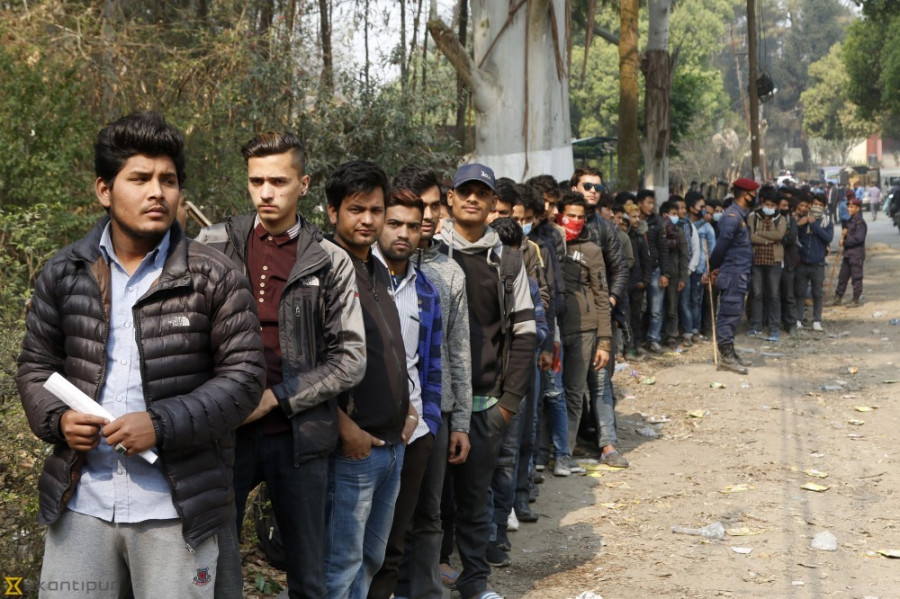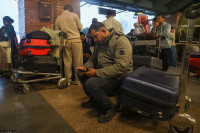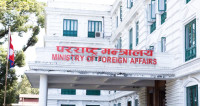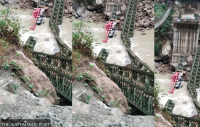National
12,009 job seekers pass Korean language test
For the first time, candidates need to attend skill test to qualify for a total of 10,050 jobs next year
Chandan Kumar Mandal
A total of 12,009 candidates have cleared the Test of Proficiency in Korean (TOPIK), a mandatory qualification for Nepalis to work in South Korea, which was conducted earlier this month.
According to the results announced by the Employment Permit Section (EPS), under the Department of Foreign Employment, on Friday, 9,133 candidates passed in the manufacturing sector whereas 2,876 youths cleared the test for agriculture and farming sector jobs in South Korea.
Those passing the test will compete for the maximum 10,050 jobs that the South Korean government has set for Nepali workers for 2020. For 2019, only 7,000 job quotas were allotted for Nepali youths in South Korea.
“Even though the South Korean government has said they would take only 10,050 candidates from Nepal, they pass a slightly higher number every year,” said Shobhakar Bhandari, information officer with the EPS, the government body managing labour migration to South Korea. “This doesn’t mean everyone who cleared the test will get a job in South Korea next year.”
The possibility of securing a job for even those who passed the language test looks tougher from this year. A candidate needs to pass also the skill test. Unavailability of any standards for skill test to be attended by Nepali youths has created confusion about the nature of the test.
“The Korean government has not shared as such standards with us,” added Bhandari. The official could only make a wild guess regarding the question patterns.
“For the agriculture sector, they might ask about the use and Korean names of certain tools and equipment, assess the physical condition of the candidate and conduct the interview,” said Bhandari. “Likewise, candidates clearing the test in the manufacturing sector might be asked to operate some machines and asked some questions during the interview. It won’t be so difficult.”
For a total score of 200 of the overall test—consisting of both language and skill tests—the skill test carries 110 marks for agriculture sector workers and 100 marks for manufacturing sector workers. The candidates need to pass both the tests to qualify for Korean jobs.
Introduction of the skill test is likely to affect the number of candidates qualifying for the jobs next year, according to officials.
“As there is no standard for skill tests and the candidates must pass the skill test as well, there is a chance of candidates failing the test,” added Bhandari.
After passing language and skill tests, these candidates will start filling up the employment form. Once the forms are accepted by the Human Resources Development Service of Korea, workers’ name will be put on the roster for South Korean employers to pick from.
A record high number of 92,376 Nepali youths registered for the languages test conducted on June 8 and 9. As 20 of those were already ineligible for sitting the exam and 8,141 candidates were absent, only 84,215 took the tests conducted in Kathmandu, Lalitpur and Pokhara. As many as 156 candidates were arrested after they were found to be writing for someone else.
As of June 15, a total of 62,227 Nepalis have reached South Korea, which is reputed among them for better facilities and remuneration compared to other labour destinations.




 9.33°C Kathmandu
9.33°C Kathmandu















